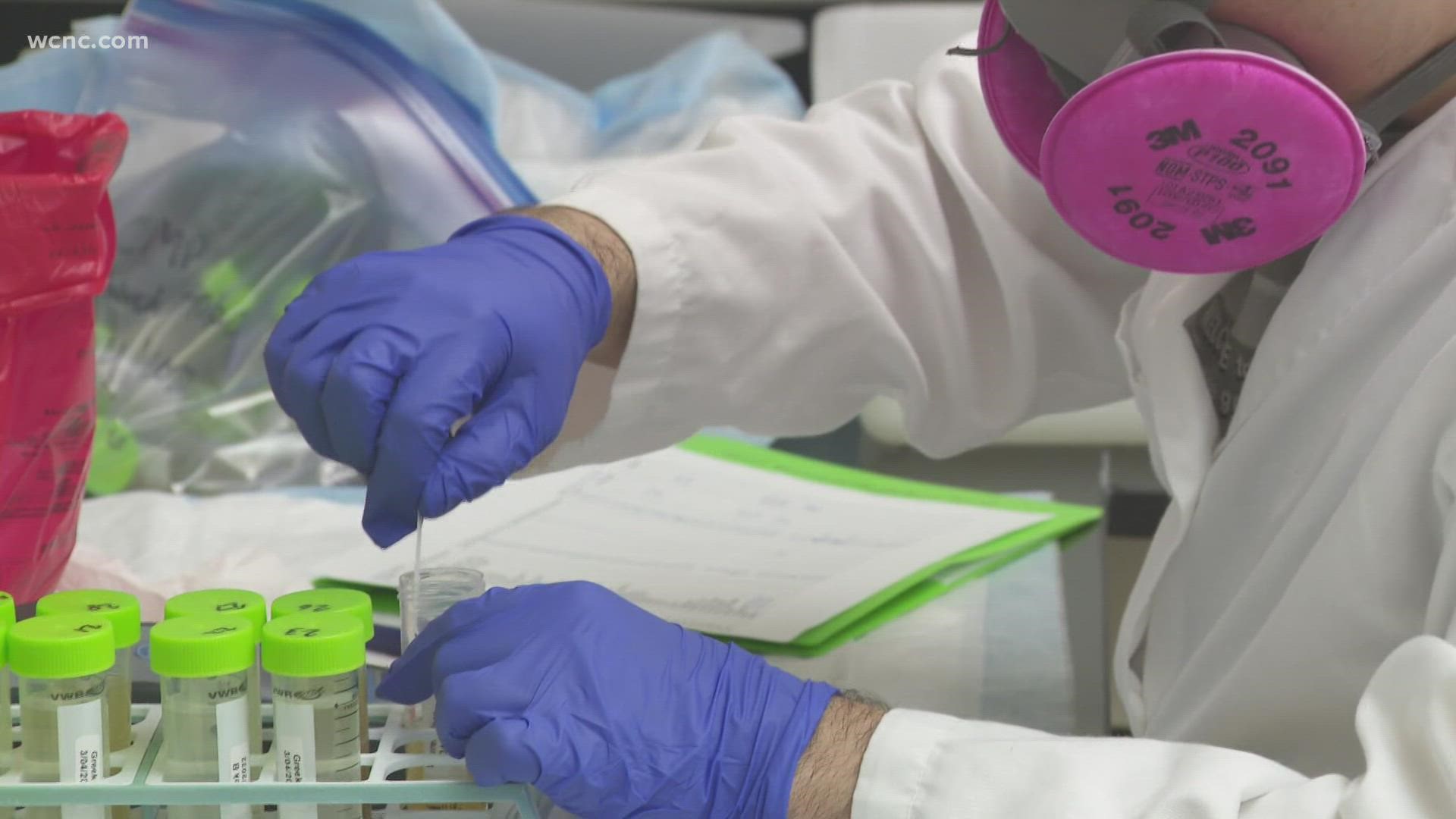CHARLOTTE, N.C. — With every flush of a toilet, and without even knowing it, everyone is contributing to science. As society moves into the endemic phase of COVID-19, experts have to keep tabs on viral levels in the community. They can do that through wastewater surveillance.
“People shed virus in their feces and then we can track COVID-19 in wastewater,” Mariya Mumir, an assistant professor of civil and environmental engineering at UNC Charlotte, said. She’s helping lead the wastewater surveillance program on campus.
Researchers have been doing it since September 2020, pulling samples from sewer lines and bringing them into the lab to eventually run through PCR tests, a process similar to that of a nose swab determining a positive or negative test result.
“It’s just a really good way of understanding what pathogens are circulating and what they’re doing in the population without asking people to go in and get tested consistently,” Jessica Schlueter, an associate professor of bioinformatics at UNC Charlotte said.
At UNC Charlotte, they’ve been using this tool to determine how much virus was on campus and can pinpoint certain buildings where an outbreak may be starting. The same work is happening on a county, state and national level.
Mecklenburg County Health Director Dr. Raynard Washington said there are five sites monitored throughout Mecklenburg County.
“We’re able to do collections at these large plants that represent large portions of households and able to detect very early when COVID infections are starting to increase in the community,” he said.
With testing sites closing and more people relying on at-home tests, it’s a vital tool in knowing exactly what’s going on at any point in time.
“The pandemic isn’t just disappearing," Schlueter said. "This pathogen isn’t just going away. It’s still circulating in the communities. We also don’t know if we’re going to be dealing with a new variant at some point."
Variants will be the biggest threat moving forward.
“There are things happening to this virus that have the potential to be a threat,” Cynthia Gibas, a professor of bioinformatics at UNC Charlotte, said. She runs the sequencing lab alongside Schlueter. They were the first lab in North Carolina to sequence omicron.
When there’s a positive result, researchers can run it through the sequencer, essentially translating the virus into a language they understand, to determine which variant it is.
“If we see something we haven’t seen before then that’s a cause for concern, especially when we start seeing it multiple times,” Schlueter said.
They could be seeing a mutation in the virus, the first signs of a new variant of COVID-19 taking off. Researchers will be keeping their eyes peeled to forecast what could be coming and guide the need for safety protocols.
“Over time, if you monitor that, you can see how that corresponds to or how that looks relative to cases when we look at old surges, and that kind of helps us understand what may be happening in the community,” Washington said.
UNC Charlotte pulls wastewater from specific dorm buildings to know when to test or quarantine certain students. The county is hoping to use that technology in area homeless shelters and in the detention center.

